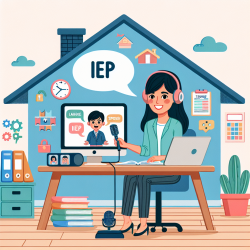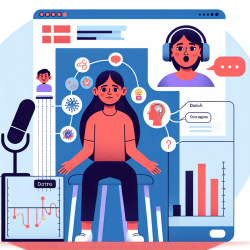In recent years, the landscape of education has dramatically shifted, and nowhere is this more evident than in the realm of special education. Educational psychologists have found themselves at the forefront of this transformation, leveraging technology to deliver essential services while working from home. This shift has not only been a necessity but has also opened new avenues for professional growth and self-actualization.
One of the key advantages of working from home is the flexibility it offers. Educational psychologists can now tailor their schedules to better meet the needs of their students and themselves. This flexibility is particularly beneficial when managing Individualized Education Programs (IEPs), as it allows for more frequent and timely interventions.
Moreover, online platforms have proven to be highly effective in delivering services such as online speech therapy. These platforms offer a range of tools that can be customized to meet the unique needs of each student. For instance, TinyEYE provides interactive and engaging activities that make learning both fun and effective. The convenience of accessing these services from home eliminates the barriers of distance and travel time, ensuring that students receive the support they need without unnecessary delays.
However, working from home also comes with its own set of challenges. Maintaining a work-life balance can be difficult when the boundaries between personal and professional spaces blur. To address this, it is crucial to establish a dedicated workspace and set clear boundaries. Regular breaks and a structured schedule can also help maintain productivity and mental well-being.
Networking remains an essential aspect of professional development, even in a remote setting. Attending virtual conferences, webinars, and online forums can provide valuable opportunities for learning and collaboration. Engaging with peers and experts in the field can offer new insights and strategies, further enhancing the quality of services provided to students.
In conclusion, the transition to working from home has brought about significant changes for educational psychologists. While there are challenges to navigate, the benefits of flexibility, accessibility, and professional growth are undeniable. By leveraging online platforms and maintaining a balanced approach, educational psychologists can continue to provide exceptional support to their students, helping them reach their full potential.
- Flexibility in scheduling and IEP management
- Effective delivery of online speech therapy
- Challenges of maintaining work-life balance
- Importance of networking and professional development










